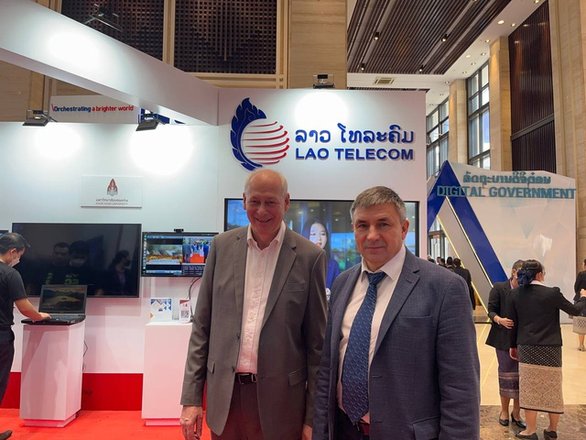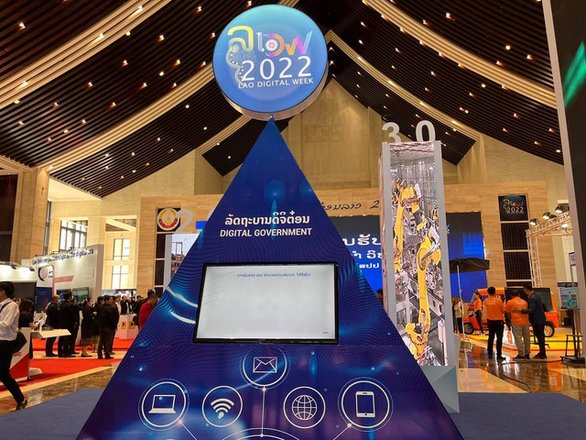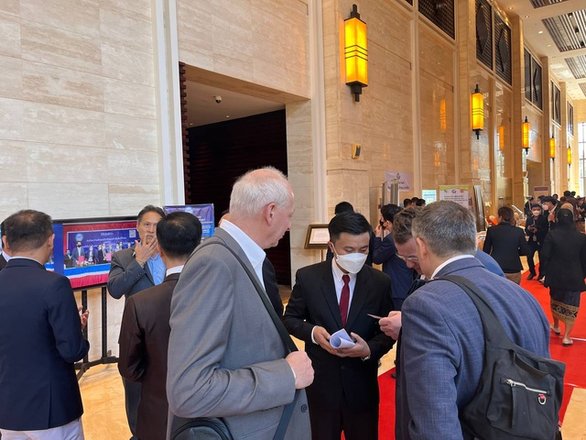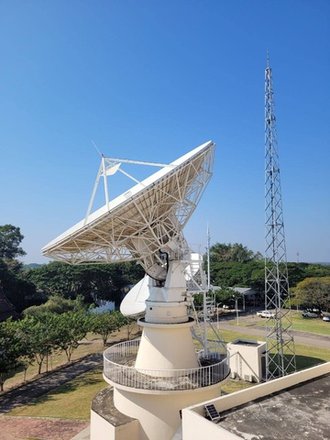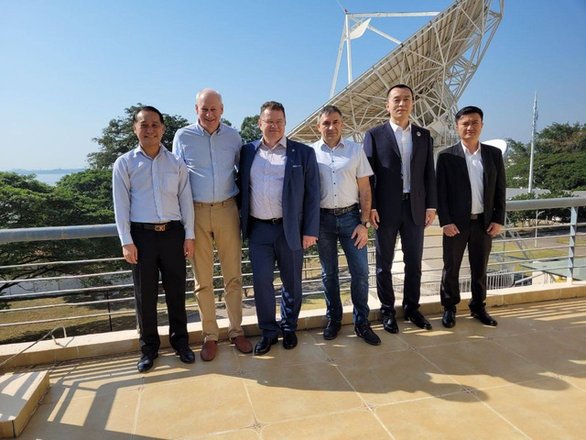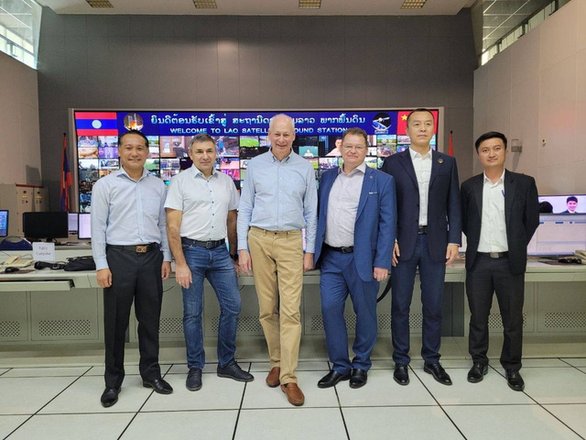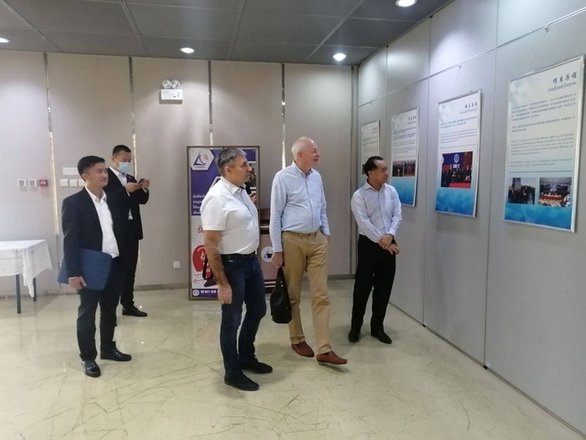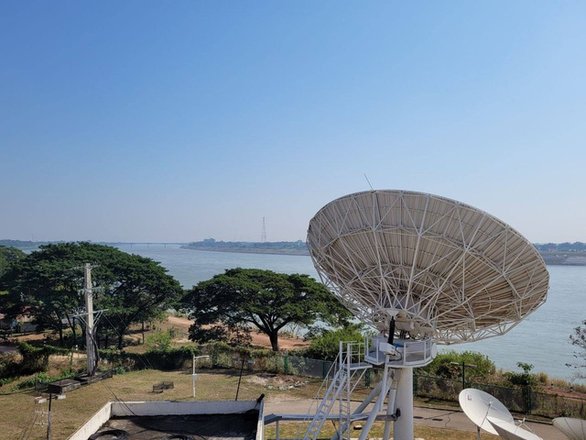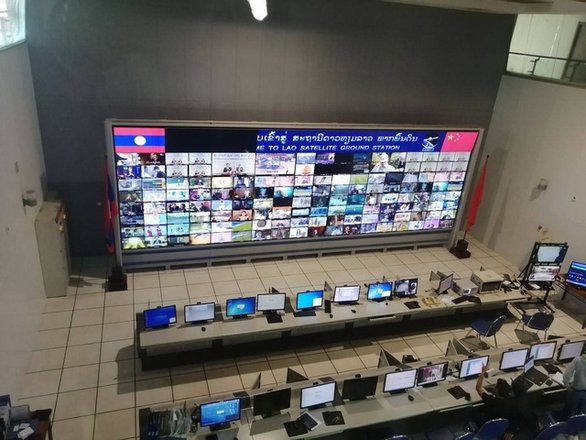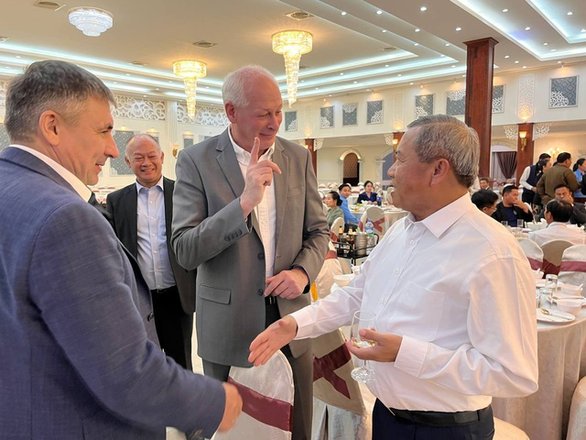With oriental regards: RSCC delegation visits Lao Digital Week 2022 and LaoSat teleport
RSCC and Intersputnik delegation took part in Lao Digital Week 2022 in Laos which was held on 21-25 December. Representatives of all the national largest telecommunications and IT companies came to visit the event. On the first day of the conference delegates of RSCC and Intersputnik held meetings with representatives of the Lao satellite operator LaoSat, as well as visited the booth of LaoTelecom.
At Lao Digital Week a lot of attention was attached to the digital development of the region and connecting remote areas to networks which can is only possible through a satellite. That is why the demand for satellite services continues to grow in Southeast Asia, as due to the terrain specifics and unevenly developed telecommunications infrastructure, digitalization of the region is not possible through terrestrial networks alone without the use of spacecraft. There is also a serious imbalance in the access of the regional population to communication services between urban and rural areas (82% vs. 47%).
Satellite operators in Asia need to solve the challenging task of providing connectivity to people in remote regions with underdeveloped infrastructure. This task gets even more complicated due to low solvency of the population and potential of public investments into relevant programs. At the same time, operators have a good chance to make money in the promising sector of mobile communications with maritime and air vessels.
Asia appears to be an attractive region for satellite operators. According to an IDC report, Asia-Pacific satellite broadband sales will reach 335.6 Gbps by 2026, as compared to 127.2 Gbps in 2022. Both the corporate and consumer sectors will drive the satellite broadband demand. The average annual growth of satellite broadband in the corporate sector will amount to 10.3% in the period of 2022-2026. Growth in the Ku-band overtakes growth in the Ka-band which is due to the expectation of rapid development of non-geostationary constellations operating in the Ku-band.
During Lao Digital Week 2022, Alexey Volin, Director General of RSCC and Ksenia Drozdova, Director General of Intersputnik, met with Boviengkham Vongdara, Lao Minister of Technology and Telecommunications. The Minister spoke about the development of the telecommunications industry in Laos and expressed interest in cooperation with the Russian satellite operator RSCC and Intersputnik international organisation.
Boviengkham Vongdara also emphasized Russia's contribution to the development of the Lao Republic and the significance of joint activities between the two countries. Thus, in early December, monuments to Soviet pilots who died during the war in Laos were unveiled in Vientiane and Xiengkhuang province in Laos.
On 22 December representatives of RSCC and Intersputnik also visited the satellite teleport of Lao operator LaoSat in Vientiane. The LaoSat ground station is located on the north bank of the Mekong River and includes a satellite control and monitoring centre, a compression centre, a Ku- and C-band antenna set, and its own TV studio. During the meeting, Alexey Volin, Director General of RSCC, and Sisan Pongnati, Deputy Director General of LaoSat, discussed possible cooperation between the operators. LaoSat, like RSCC, is a member of Intersputnik international organisation.
LaoSat operates the Laosat-1 GEO satellite at an orbital position of 128.5° E. The satellite capacity is used to deliver TV signals to remote regions and establish communication channels there. The satellite TV signal covers all of Laos and neighbouring Southeast Asian states, delivering 185 TV channels. Currently, the company has more than 400,000 customers who use Laosat HD set-top boxes.
RSCC has been also successfully developing satellite projects in ASEAN, the Association of Southeast Asian Nations. In this region, the RSCC offers integrated solutions for mobile communications services, digital TV broadcasting in various formats and high-speed data transmission based on the bandwidth of the Russian spacecraft of the Express-AM series included in the Company's satellite constellation.
